Why are cluster munitions controversial?
The U.S. will send a new weapon to Ukraine. Human rights advocates are alarmed.

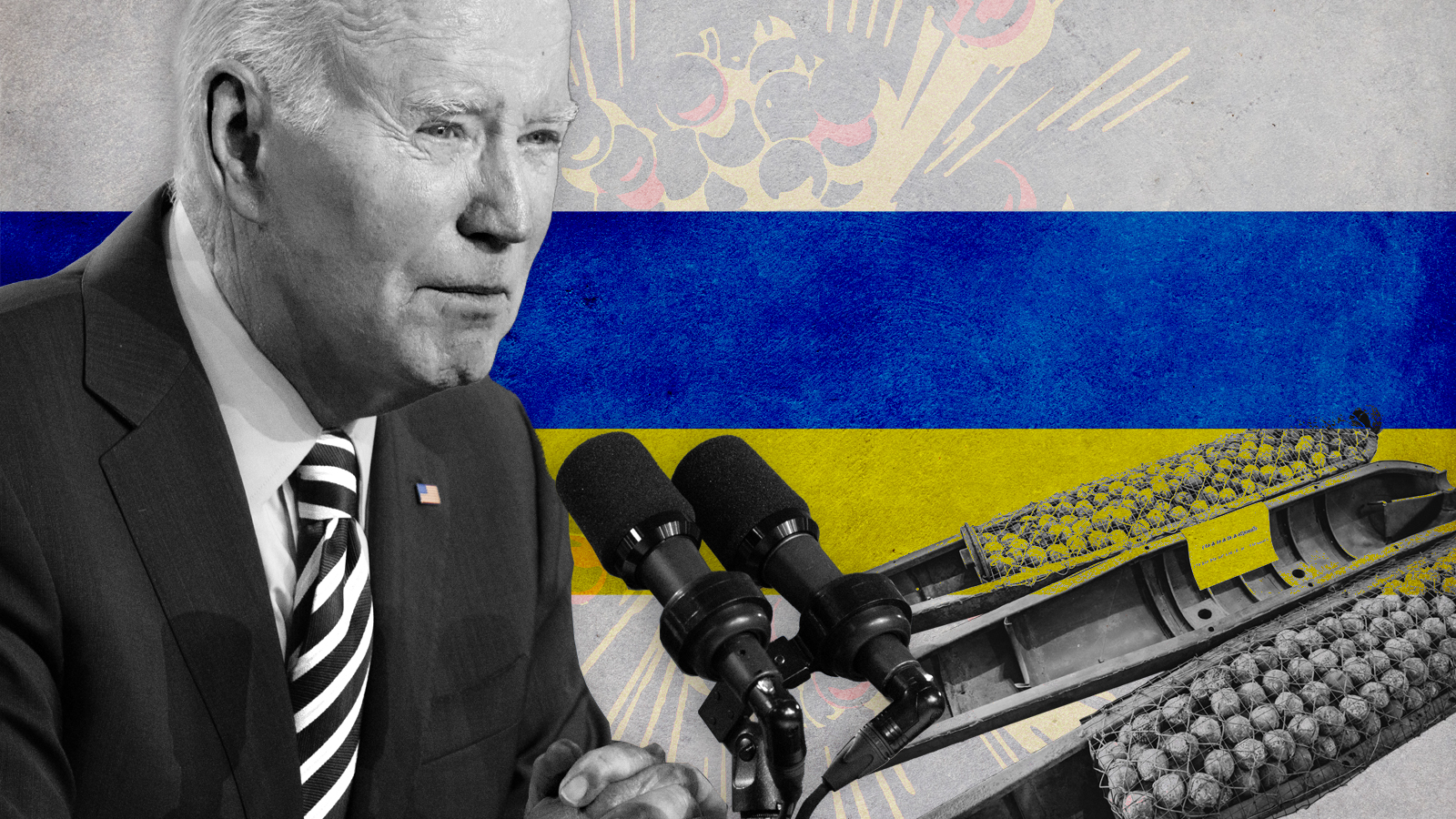
A free daily email with the biggest news stories of the day – and the best features from TheWeek.com
You are now subscribed
Your newsletter sign-up was successful
America is sending another deadly weapon to help Ukraine fight Russia. The Associated Press reported the White House has approved Ukraine's request for cluster munitions — bombs and artillery shells that open in the air to release dozens or hundreds of "bomblets" to destroy multiple targets at once. "The Ukrainians have asked for it, other European countries have provided some of that, and the Russians are using it," said Gen. Mark Milley, the chairman of the Joint Chiefs of Staff. Ukraine expects to use the munitions as part of its slow-moving counteroffensive against Russia.
The weapons are controversial. The International Committee of the Red Cross said, "Cluster munitions kill and injure large numbers of civilians and cause long-lasting socioeconomic problems." The 2008 Convention on Cluster Munitions (CCM) prohibited the stockpiling and use of cluster weapons, but neither the United States, Ukraine nor Russia are parties to the treaty.
The American decision has drawn criticism from human rights activists, Al Jazeera reported. "Cluster munitions used by Russia and Ukraine are killing civilians now and will continue to do so for many years," said an official with Human Rights Watch. "Both sides should immediately stop using them and not try to get more of these indiscriminate weapons."
The Week
Escape your echo chamber. Get the facts behind the news, plus analysis from multiple perspectives.

Sign up for The Week's Free Newsletters
From our morning news briefing to a weekly Good News Newsletter, get the best of The Week delivered directly to your inbox.
From our morning news briefing to a weekly Good News Newsletter, get the best of The Week delivered directly to your inbox.
What are commentators saying?
Giving cluster munitions to Ukraine "might be the only way to save more Ukrainian towns from death and destruction," Josh Rogin wrote for The Washington Post. Human rights groups are right to note the danger of cluster bombs to civilians. The bombs often leave unexploded "duds" behind, making battlefields lethal long after the fighting is over. But Ukrainians understand the downsides. "Because it is their lives on the line, it is their risk to take, and we should honor their request."
"This is a decision the Pentagon should rethink immediately," Hayes Brown wrote for MSNBC. We've already seen the cost of cluster munitions in the Russo-Ukraine war. Russia has used them extensively, killing at least 700 civilians along the way. The people most threatened by more cluster bombs are the same people Ukrainian forces are trying to protect. But the price is too high. The weapons "not only undercut much of the moral high ground the West has taken in the conflict, but it will also threaten the safety of Ukrainian civilians."
"While safety concerns are not irrational, the battlefield is already a deadly place," Morgan Ortagus and Andrew McKenna wrote for The Washington Examiner. Cluster munitions could tip the war in Kyiv's favor and lighten the demand on strained ammunition supplies. Moscow has been "unrestrained" in its use of cluster munitions. "It makes little sense to impose limits on Ukraine while Russia faces no such restrictions."
"Cluster munitions should be off the table if we care about protecting civilian lives," Sera Koulabdara wrote for USA Today. Koulabdara is the chair of the U.S. Campaign to Ban Landmines and Cluster Munition Coalition. Cluster munitions can leave behind dangers that last for decades, making it difficult for children to walk safely to school or farmers to plant crops. That remains the case in Laos, which Koulabdara fled after a U.S. bombing campaign in the 1970s. "Let us not contribute to further atrocities by allowing Ukrainian soil to be littered with American cluster bombs."
A free daily email with the biggest news stories of the day – and the best features from TheWeek.com
What's next?
There will be some international opposition to Washington's decision. Reuters reported that Germany has come out against sending cluster munitions to Ukraine. President Joe Biden will have to deal with that opposition from American allies —France, Germany and the U.K. are among the more than 100 countries to sign the CCM — as well as criticism within the ranks of the Democratic Party. The New York Times pointed out that "over the years, many Democrats have led the charge to bar the use of the weapons by American troops."
Ukraine believes the cluster munitions will help its forces press the advantage against Russia with stockpiles of other munitions running low, The Washington Post reported. The Russians "are using them against us," said Ukrainian Defense Minister Oleksii Reznikov, "so for our self-defense, we have full right to use the same munition."
Joel Mathis is a writer with 30 years of newspaper and online journalism experience. His work also regularly appears in National Geographic and The Kansas City Star. His awards include best online commentary at the Online News Association and (twice) at the City and Regional Magazine Association.
-
 Crisis in Cuba: a ‘golden opportunity’ for Washington?
Crisis in Cuba: a ‘golden opportunity’ for Washington?Talking Point The Trump administration is applying the pressure, and with Latin America swinging to the right, Havana is becoming more ‘politically isolated’
-
 5 thoroughly redacted cartoons about Pam Bondi protecting predators
5 thoroughly redacted cartoons about Pam Bondi protecting predatorsCartoons Artists take on the real victim, types of protection, and more
-
 Palestine Action and the trouble with defining terrorism
Palestine Action and the trouble with defining terrorismIn the Spotlight The issues with proscribing the group ‘became apparent as soon as the police began putting it into practice’
-
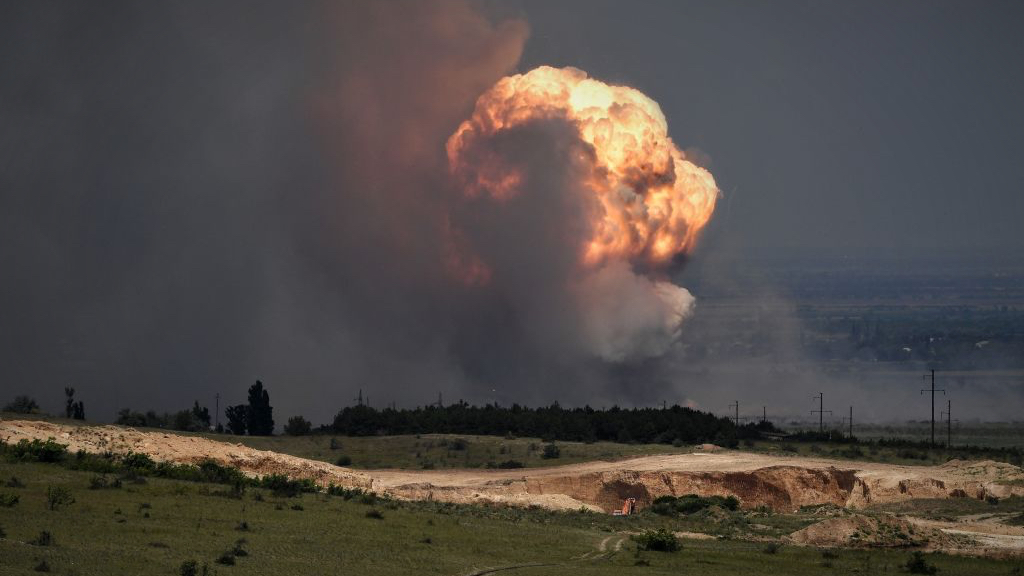 Russia's Crimea fleet shipyard on fire after Ukrainian missile strike
Russia's Crimea fleet shipyard on fire after Ukrainian missile strikePhotos and videos showed huge explosions and raging fires at the Sevastopol Shipyard
-
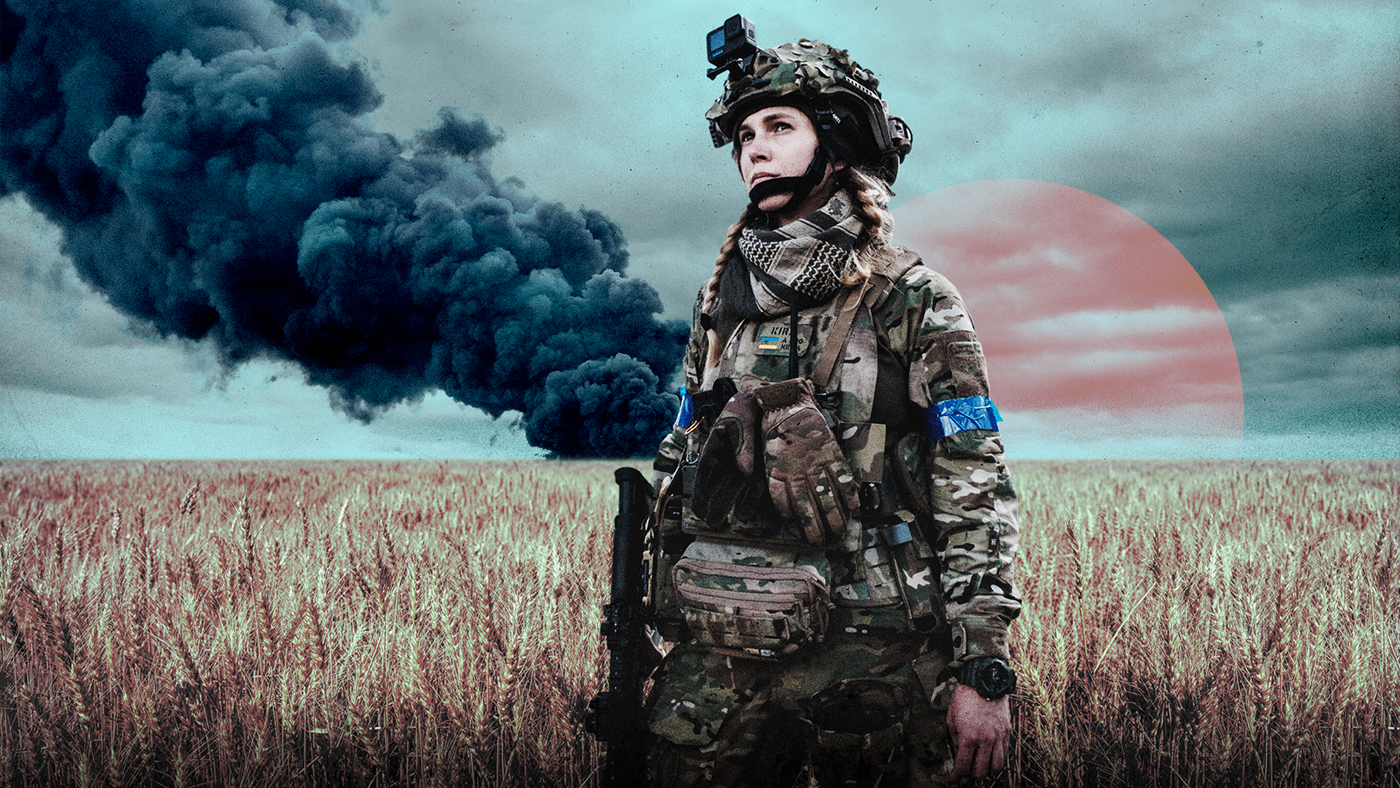 Has Ukraine's counteroffensive become a 'war of attrition?'
Has Ukraine's counteroffensive become a 'war of attrition?'Today's Big Question An expected thrust has turned into a slog
-
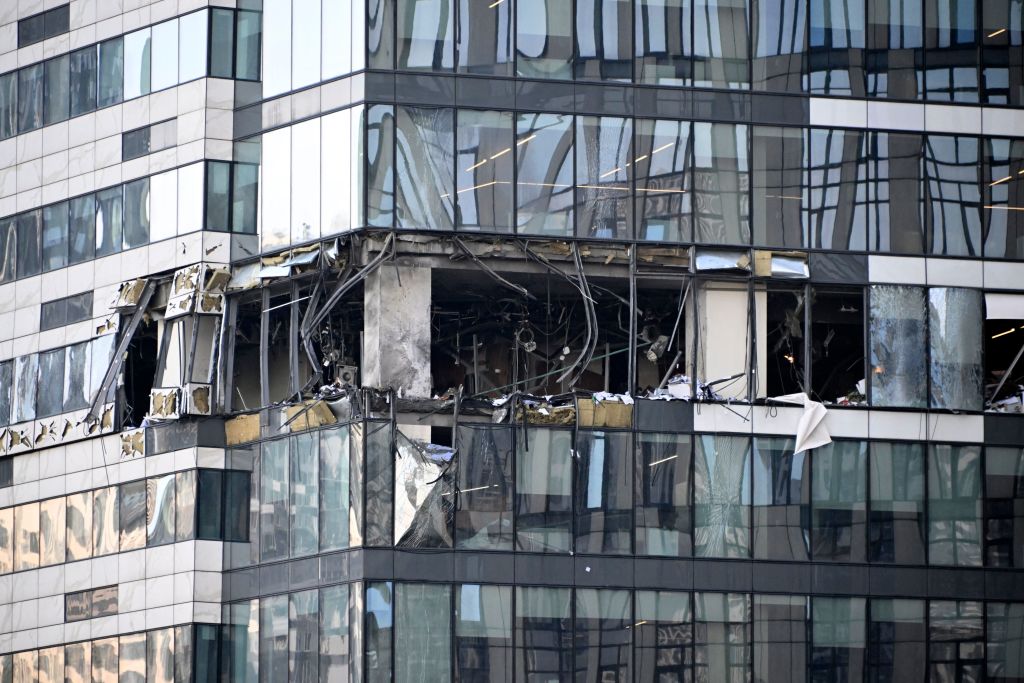 Saudi Arabia to host Russia-less Ukraine peace talks, Kyiv confirms, as Moscow hit by more drones
Saudi Arabia to host Russia-less Ukraine peace talks, Kyiv confirms, as Moscow hit by more dronesSpeed Read
-
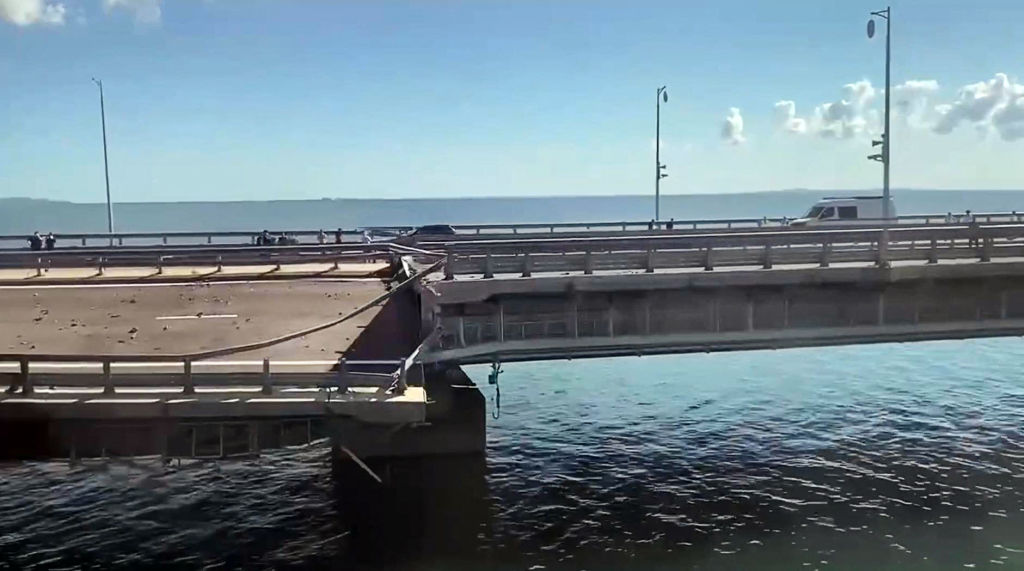 Attack attributed to Ukraine naval drones damages key Russian bridge to occupied Crimea
Attack attributed to Ukraine naval drones damages key Russian bridge to occupied CrimeaSpeed Read
-
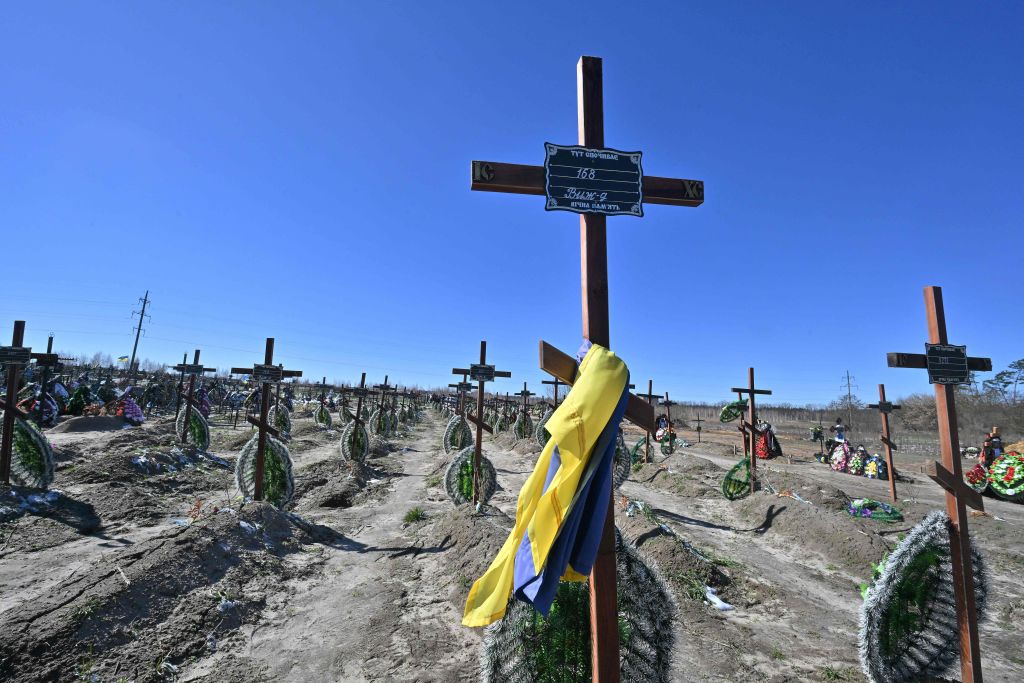 Inside Russia's war crimes
Inside Russia's war crimesSpeed Read Occupying forces in Ukraine are accused of horrific atrocities. Can they be held accountable?
-
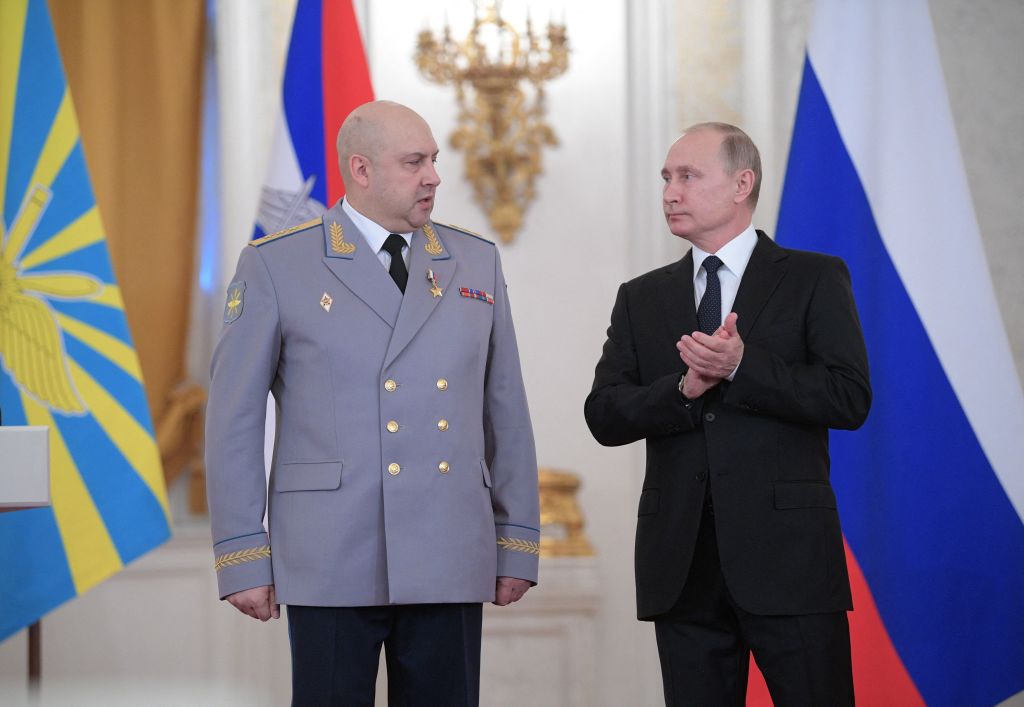 Top Russian generals killed, fired, disappeared after aborted Wagner mutiny
Top Russian generals killed, fired, disappeared after aborted Wagner mutinySpeed Read
-
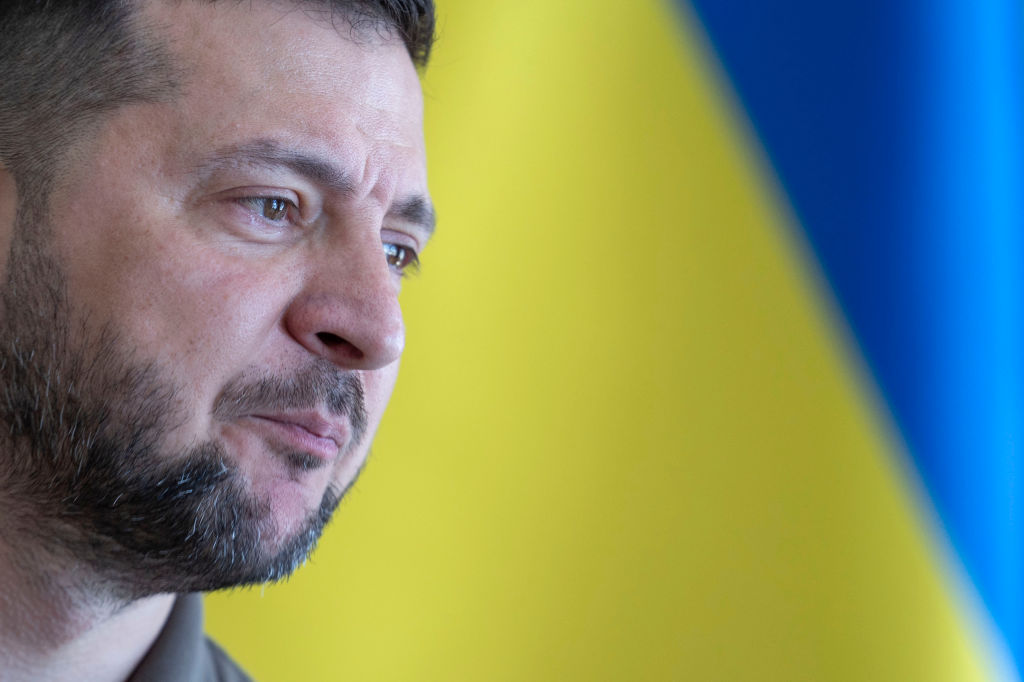 Should Ukraine be admitted to NATO?
Should Ukraine be admitted to NATO?Talking Point With this week's Vilnius summit, Ukraine's possible accession to the military alliance is more than a little top of mind
-
 Top Russian general knew about Wagner's mutiny beforehand, U.S. intelligence assesses
Top Russian general knew about Wagner's mutiny beforehand, U.S. intelligence assessesSpeed Read
